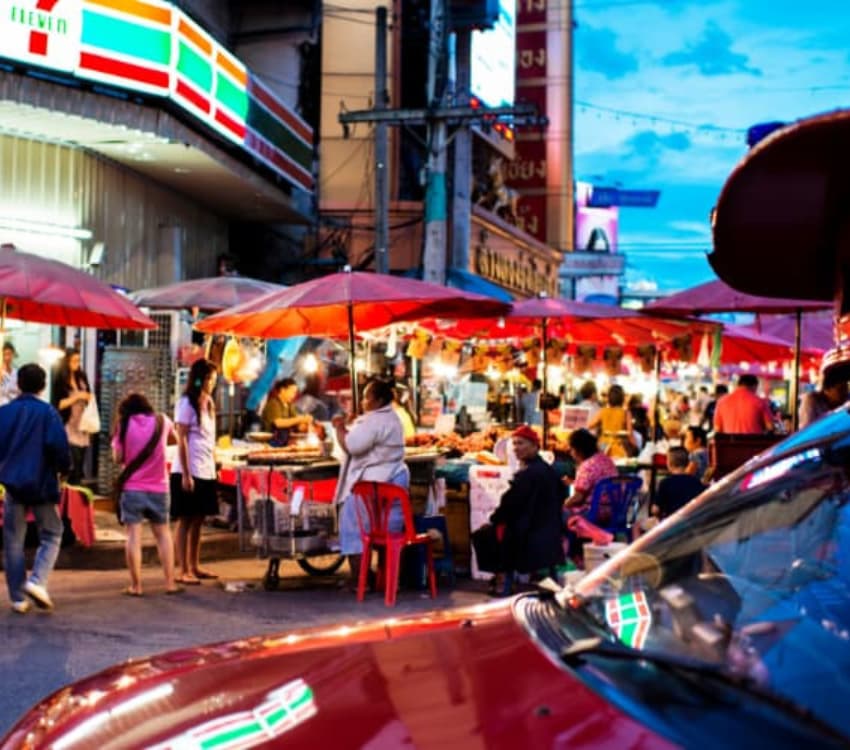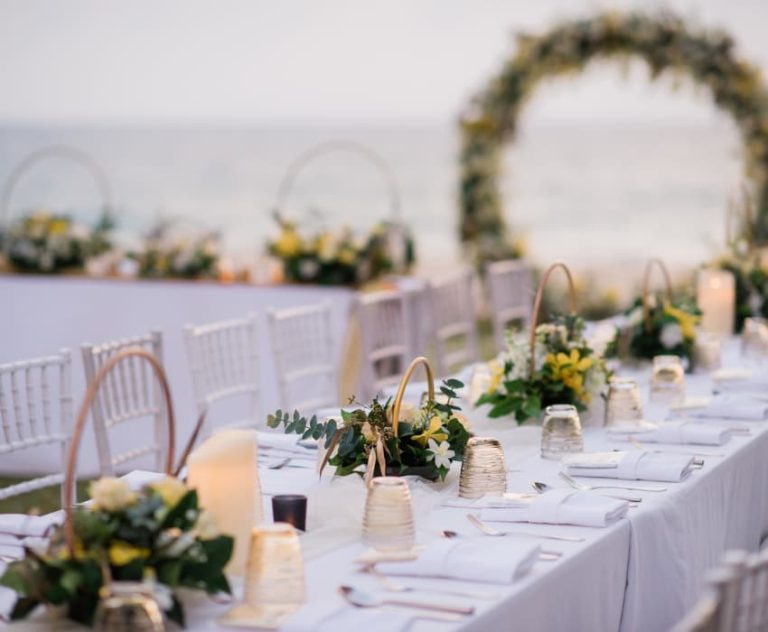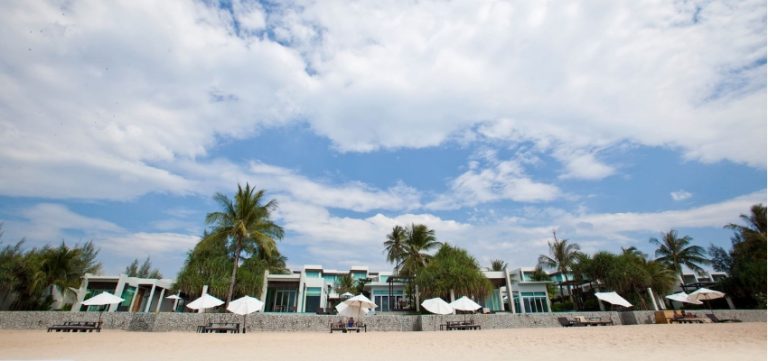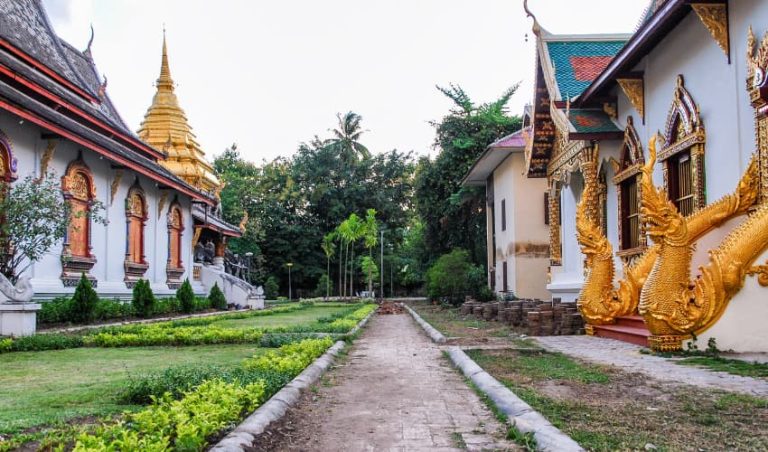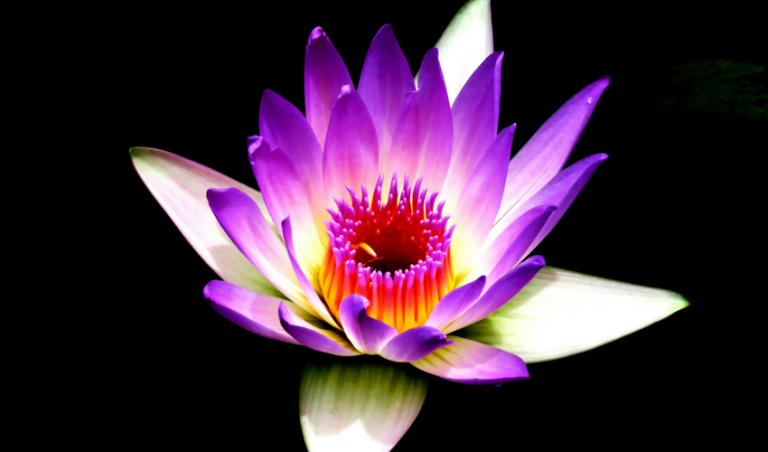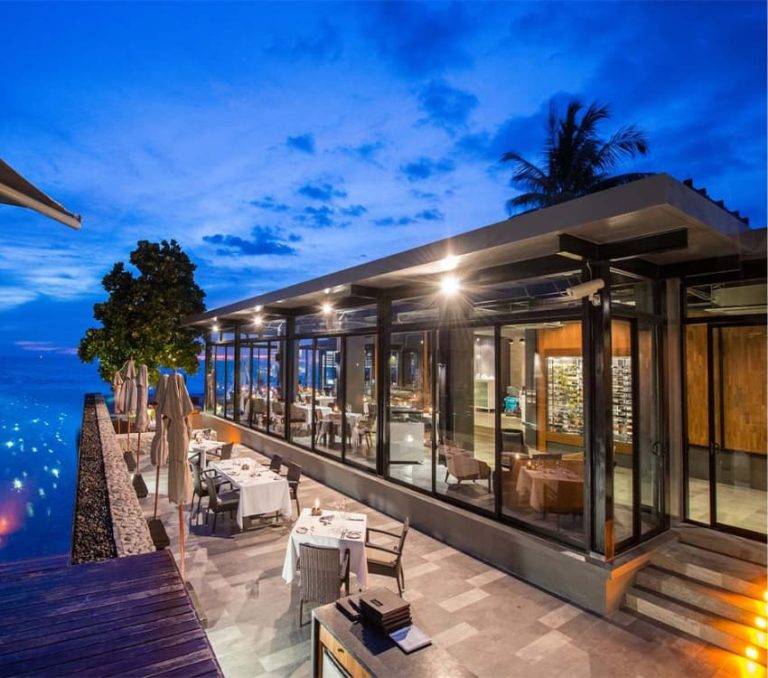Chiang Mai is a city where history, culture, and daily life intertwine seamlessly, and nowhere is this more evident than at Warorot Market. Known locally as Kad Luang, this bustling market has been a cornerstone of Chiang Mai’s community for over a century. It remains a must-visit destination for anyone looking to immerse themselves in the city’s vibrant atmosphere, experience authentic Thai markets, and sample some of the best local delicacies.
We encourage our guests to venture beyond the usual tourist spots and discover the true essence of Chiang Mai. Warorot Market offers a genuine snapshot of local life, filled with traditional flavours, handcrafted goods, and cultural treasures waiting to be explored.
The History Behind Warorot Market
Warorot Market has been a central hub for trade and commerce since the late 19th century. Located near the Ping River, it was historically a key trading point for merchants transporting goods via boat. Over the decades, it has evolved into one of the most important markets in Chiang Mai, serving both locals and visitors.
Unlike the city’s famous night markets, Warorot Market is primarily a daytime market, making it one of the best places to experience everyday Chiang Mai life. Locals shop for fresh produce, fabrics, and household essentials here, and generations of traders have built their livelihoods here.
Warorot Market’s Sections
Fresh Market
As you step inside Warorot Market, you’ll be greeted by a symphony of sights, sounds, and aromas. The ground floor is home to the fresh market, where vendors display an impressive array of seasonal fruits, aromatic herbs, dried spices, and freshly prepared street food.
This is the perfect place to sample local delicacies like Sai Ua (Northern Thai sausage), Nam Prik Noom (spicy green chilli dip), and crispy pork rinds. The market is renowned for its Thai sweets and traditional snacks, such as Kanom Krok (coconut pancakes) and sticky rice with mango.
At the heart of the fresh market is the flower section, where vibrant bouquets of jasmine, orchids, and marigolds add splashes of colour. Many of these flowers are used in Buddhist offerings and traditional ceremonies.
No visit to Warorot Market is complete without trying its delicious street food. Some must-try dishes include:
- Khao Kha Moo (Braised Pork Leg on Rice) – A rich, savoury dish slow-cooked to perfection, served with pickled greens and a hard-boiled egg.
- Miang Kham – A traditional Thai snack of betel leaves filled with peanuts, dried shrimp, shallots, lime, and coconut.
- Tod Man Pla (Thai Fish Cakes) – A flavourful and spicy snack, often paired with a sweet cucumber relish.
- Khanom Jeen Nam Ngiao – A Northern Thai noodle dish in a spicy tomato-based broth with minced pork and fresh herbs.
- Roasted Chestnuts – A Chinese influence found throughout the market, sold in large wok-like pans and make for a warm, nutty snack.
Textiles and Handicrafts
Venture upstairs to explore various fabrics, clothing, and handcrafted goods. Warorot Market is an excellent place to buy traditional Thai and Hill tribe textiles, including handwoven cotton, silk scarves, and embroidered bags. The market is home to generations of textile traders, ensuring a truly authentic shopping experience.
For those looking for souvenirs, you’ll find handmade jewellery, wooden carvings, and beautifully painted ceramics at very reasonable prices. This is also one of the best spots to pick up a traditional Lanna-style sarong, perfect for those wanting to embrace Northern Thai fashion.
Traditional Chinese Influence
Warorot Market is located in Chiang Mai’s Chinatown district, which means it has a significant Chinese influence on its food, architecture, and atmosphere. For generations, the same families have run many herbal medicine shops, tea houses, and dried goods vendors.
One of the most fascinating sections of the market is the Chinese apothecaries, where you’ll find shelves filled with medicinal herbs, dried fruits, and natural remedies. If you’re curious, the friendly shopkeepers are often happy to explain the healing properties of their products.
Warorot Market is Worth a Visit
Unlike the curated experience of Chiang Mai’s night bazaars, Warorot Market is raw, authentic, and utterly captivating. Here, you’ll see monks collecting morning alms, elderly vendors preparing traditional snacks, and locals haggling over daily essentials.
Beyond shopping, visiting Warorot Market is about experiencing the local way of life. It’s about sipping on fresh coconut juice while people-watching, discovering unexpected treasures in the side alleys, and engaging in friendly conversations with shopkeepers who have spent decades perfecting their craft.
The market is also incredibly affordable, making it ideal for travellers who want to shop on a budget while acquiring quality, authentic Thai products.
Visiting Warorot Market
To make the most of your visit, arrive early in the morning when the market is lively and the freshest produce is on display. If you plan to buy food items, remember that many snacks and spices make excellent take-home souvenirs.
Since the market is not overly touristy, many vendors do not speak English fluently, but a smile and some basic Thai phrases go a long way. Bargaining is common, but the prices here are already fair compared to night markets.
For those staying at Aleenta Retreat Chiang Mai, we recommend pairing your visit to Warorot Market with a stroll along Charoen Rat Road, where you can enjoy riverside cafés and art galleries after your shopping adventure.
Q: What are the opening hours of Warorot Market?
Warorot Market is open daily from 5:00 AM to 6:00 PM. Arrive early for the freshest produce and a quieter shopping experience.
Q: How do I get to Warorot Market?
The market is near the Ping River, just a short walk from Tha Phae Gate. For easy access, you can take a red songthaew (shared taxi), tuk-tuk, or rent a bicycle.
Q: Is bargaining allowed at Warorot Market?
Yes, bargaining is common for non-food items like clothing, textiles, and souvenirs. However, prices for fresh food and snacks are usually fixed.
Q: Can I use credit cards at the market?
Most vendors only accept cash, so it’s best to bring Thai baht. ATMs are available near the entrance if needed.
Q: Are vegetarian or vegan options available?
Absolutely! Many food stalls offer fresh tropical fruits, vegetable curries, and tofu-based dishes. Just ask for dishes that are “jay” (vegetarian in Thai) to ensure that no fish sauce or meat is included.
Discover Chiang Mai with Aleenta Retreat
At Aleenta Retreat Chiang Mai, we take pride in offering our guests an authentic and immersive experience of the city. Warorot Market is just one of the many cultural gems we love to share, and we’re always happy to provide personalised recommendations and guided experiences to make your stay unforgettable.
After a morning of market exploring, return to the tranquillity of Aleenta, where you can relax by the pool, indulge in a rejuvenating spa treatment, or enjoy a farm-to-table meal inspired by Chiang Mai’s local flavours.
Warorot Market is not just a place to shop—it’s a place to experience, connect, and appreciate Chiang Mai’s everyday beauty. Let us guide you through its vibrant lanes and ensure your Chiang Mai adventure is one to remember.
Stay. Explore. Experience. Your Chiang Mai journey begins with our wellness hotel in Chiang Mai.
Related Articles
- Famous Streets in Chiang Mai
- Exploring the Markets in Chiang Mai
- Explore Chinatown in Chiang Mai
- Most Visited Attractions in Chiang Mai
- Historic Gates of Chiang Mai Old City Walls
Aleenta Retreat
Chiang Mai
Chiang Mai
189 Soi Ban Mai Lang Mo 18,
Suthep, Muang Chiang Mai District,
Chiang Mai 50200
T: +66 (0)52 090 333

